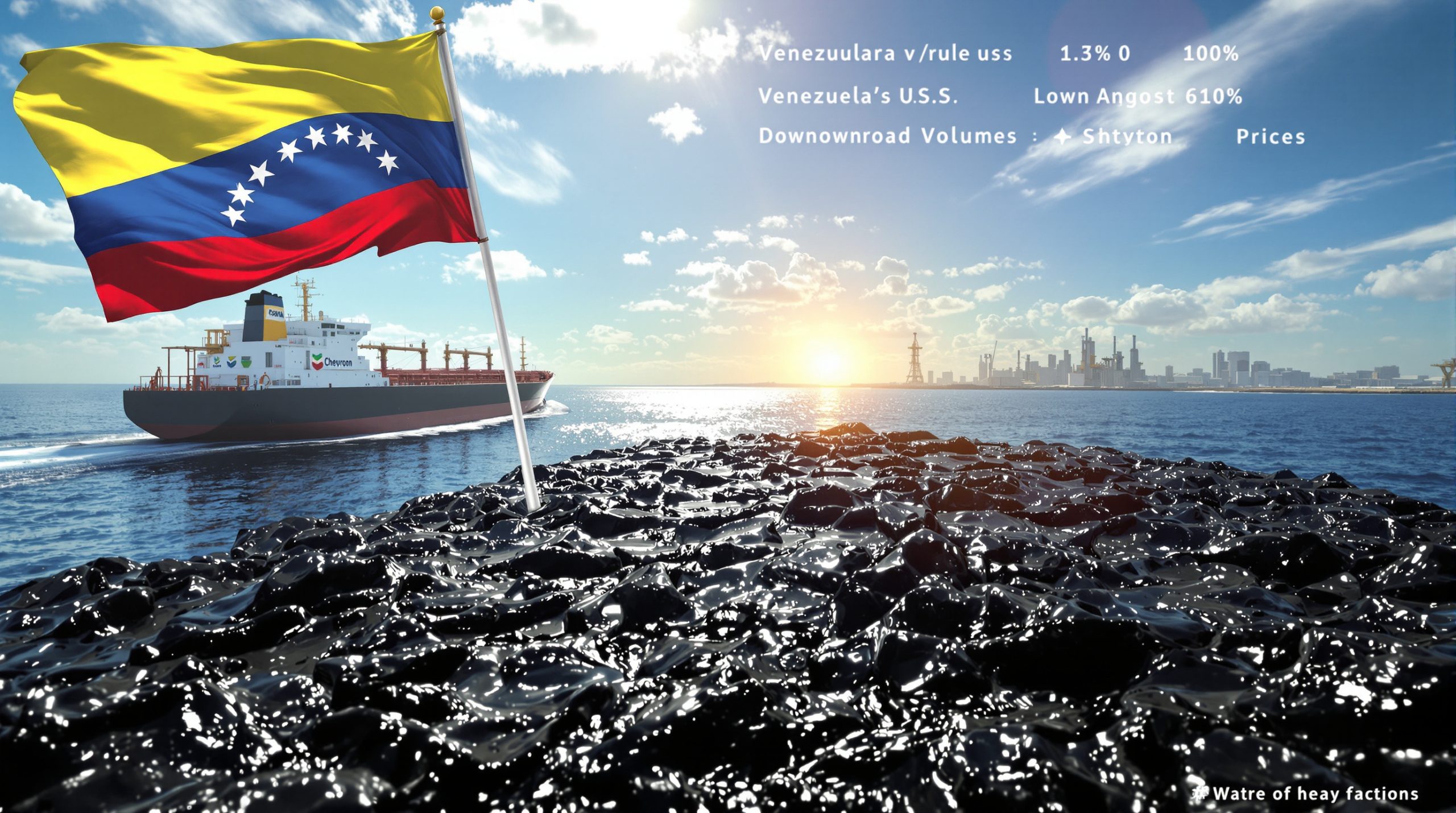The Strategic Significance of Turkey's Pipeline Agreement Cancellation with Iraq
Turkey's cancellation of the 1973 pipeline agreement with Iraq marks a pivotal shift in regional energy politics and bilateral relations. This decision, made retroactive to July 2022, carries significant implications for oil exports, economic stability, and geopolitical dynamics throughout the Middle East. Understanding the complex factors behind this cancellation reveals much about evolving energy corridors and the delicate balance of power between neighboring states.
What Was the 1973 Iraq-Turkey Pipeline Agreement?
The 1973 agreement established the legal framework for transporting Iraqi crude oil through Turkish territory to the Mediterranean port of Ceyhan. This critical infrastructure provided Iraq's northern oil fields with access to international markets, serving as an essential revenue source for both Baghdad and the Kurdistan Regional Government (KRG).
Historical Context and Original Terms
The agreement emerged during a period of regional cooperation and growing oil demand, creating a mutually beneficial arrangement for both countries. Iraq gained a reliable export route for its northern oil fields, while Turkey secured transit fees and strengthened its position as a regional energy corridor. The original terms outlined responsibilities for pipeline operation, maintenance, and security, though many provisions would later prove inadequate for addressing modern challenges.
Over the decades, this agreement weathered multiple conflicts, including the Iran-Iraq War, Gulf Wars, and the rise of ISIS, demonstrating remarkable resilience despite regional instability. However, the emergence of semi-autonomous Kurdistan and its independent oil exports created complications not anticipated in the original agreement.
Strategic Importance of the Pipeline
The Iraq-Turkey pipeline system, with its capacity to transport approximately 1 million barrels per day, represented far more than mere infrastructure. For Iraq, particularly the Kurdistan region, it functioned as an economic lifeline, providing crucial revenue streams that sustained government operations and development projects.
Beyond commercial significance, the pipeline embodied regional energy interdependence and cooperation. It connected landlocked Iraqi oil fields to international markets and reinforced Turkey's strategic position as an energy transit hub bridging Middle Eastern resources with European consumers.
The pipeline's operation became increasingly complicated following the 2003 Iraq War and subsequent political transformations within Iraq. The Kurdistan Regional Government began developing its oil resources independently, creating tensions with Baghdad over export authorization and revenue sharing that the original agreement wasn't designed to address.
What Prompted Turkey's Cancellation Decision?
Turkey's decision to terminate the longstanding agreement stemmed from multiple factors, with immediate legal and financial concerns serving as the primary catalyst.
The Paris Arbitration Ruling
The immediate trigger for Turkey's cancellation was an international arbitration ruling from Paris that ordered Turkey to pay Iraq approximately $1.5 billion in compensation. This substantial penalty resulted from Turkey's facilitation of Kurdish oil exports without securing explicit approval from Baghdad, which the arbitration court deemed a violation of the agreement terms.
Turkish officials viewed this ruling as fundamentally unfair, arguing that the original agreement lacked clear provisions for handling disputes between Baghdad and Erbil regarding export authorization. From Turkey's perspective, the arbitration decision highlighted the outdated nature of the agreement and created unacceptable financial and legal exposure.
Retroactive Implementation
In a strategic move, Turkey made its cancellation retroactive to July 2022. This timing wasn't arbitrary—it represented a calculated legal maneuver designed to minimize financial liability following the arbitration decision while simultaneously creating a clean slate for future negotiations.
By backdating the cancellation, Turkey effectively signaled that it would not accept additional liabilities under the old agreement while positioning itself for fresh negotiations that would better protect its interests and reflect current regional realities.
Pipeline Shutdown Context
The Ceyhan export line has remained inactive since March 2023, when Turkey unilaterally halted operations following the arbitration ruling. This extended shutdown has created economic hardship for all parties involved, with Iraq unable to export significant volumes of northern oil and Turkey losing transit fees and associated economic benefits.
The pipeline's closure has exacerbated an already complex situation, creating urgency for a new agreement while simultaneously making negotiations more challenging due to mounting economic pressures and political considerations.
How Has the Pipeline Dispute Affected Regional Stakeholders?
The dispute and subsequent pipeline shutdown have created ripple effects throughout the region, with significant economic and political consequences for all involved parties.
Economic Impact on Iraq and Kurdistan
The pipeline shutdown has reportedly cost both Baghdad and the KRG over $1 billion monthly in lost revenue—a staggering economic blow to both entities. For Iraq's central government, these losses represent foregone funds for reconstruction, public services, and broader economic development.
For the Kurdistan Regional Government, the financial strain has been particularly severe. The KRG's budget, already under pressure from various factors including the COVID-19 pandemic and internal political challenges, relies heavily on oil export revenues. Without this income stream, the Kurdish authorities have struggled to pay public sector salaries and maintain essential government services.
"The extended shutdown is creating unsustainable financial pressure on Kurdistan's regional economy, potentially threatening the stability of an area that has been relatively secure compared to other parts of Iraq," noted a regional energy analyst in a recent assessment.
Turkey's Strategic Calculations
For Turkey, the cancellation represents more than just a response to the arbitration ruling. It serves as leverage to force a renegotiation on more favorable terms while maintaining Turkey's position as a critical energy corridor between Middle Eastern producers and European markets.
Turkey's broader regional strategy involves strengthening its position as an energy hub—a goal that requires reliable transit agreements with resource-rich neighbors. By canceling the outdated agreement, Turkey hopes to establish a new framework that:
- Provides legal protection against future arbitration claims
- Clarifies authorization processes for oil exports
- Expands cooperation beyond oil to include natural gas and electricity
- Reinforces Turkey's role as an indispensable partner in regional energy trade
International Energy Market Implications
While the disruption of this export route has contributed to regional supply uncertainties, global oil price movements have largely absorbed the impact due to several factors:
- Excess production capacity elsewhere in global markets
- The relatively modest volume of Iraqi northern exports compared to total global supply
- Market attention focused on other factors including OPEC production impact and global economic conditions
Nevertheless, the ongoing dispute has highlighted vulnerabilities in regional energy transit routes and reinforced the importance of diversified export options for producers like Iraq.
What Legal Issues Surround the Pipeline Dispute?
The dispute involves complex legal questions that transcend simple contractual disagreements, touching on issues of sovereignty, constitutional authority, and international obligations.
Outdated Legal Framework
Turkish officials have characterized the 1973 agreement as legally outdated and structurally ambiguous, particularly regarding scenarios where Baghdad and Erbil (KRG) are in conflict over export authorization. The agreement predates Iraq's current constitutional structure and the emergence of the semi-autonomous Kurdistan region as an oil producer.
According to a July 2025 analysis published by Al-Monitor, Ankara is seeking to eliminate these ambiguities in a new framework that clearly defines approval mechanisms, liability terms, and authorization pathways. The original agreement simply wasn't designed to handle the complex internal politics of modern Iraq, creating legal gray areas that proved costly for Turkey.
Constitutional Questions in Iraq
Iraq's Federal Supreme Court ruled in 2022 that Kurdish oil exports conducted without central government approval are unconstitutional, further complicating the legal landscape and limiting Baghdad's negotiating flexibility. This ruling reinforced the central government's authority over oil exports while creating additional challenges for resolving the pipeline dispute.
The constitutional ruling means that any new agreement must respect Baghdad's ultimate authority over Iraqi oil exports, including those originating from Kurdistan. This requirement creates tension with the KRG's desire for autonomy in managing its energy resources and Turkey's interest in a streamlined export process.
Liability and Authorization Concerns
A central issue in the dispute involves defining clear approval mechanisms, liability terms, and authorization pathways for oil exports—especially regarding Kurdish-origin barrels that may lack explicit Baghdad approval.
The question of who bears legal responsibility when exports proceed without unanimous internal Iraqi approval remains contentious. Turkey wants protection from future liability, while Baghdad needs to maintain its constitutional authority over the country's oil resources. Finding a solution that satisfies both requirements represents one of the primary challenges in negotiating a new agreement.
What Are Turkey's Objectives in Canceling the Agreement?
Turkey's decision to cancel the agreement reflects specific strategic objectives related to legal, economic, and geopolitical considerations.
Legal Protection and Risk Mitigation
Turkey seeks to establish a new framework that clearly defines liability and authorization processes to avoid future arbitration losses and legal exposure when handling Iraqi oil exports. The $1.5 billion arbitration ruling demonstrated the substantial financial risk associated with the ambiguities in the original agreement.
A new agreement would ideally include explicit provisions addressing:
- Who can authorize exports from different regions of Iraq
- How disputes between Iraqi entities are handled within the export framework
- Clear liability limitations for Turkey when acting as a transit country
- Dispute resolution mechanisms that protect Turkey's interests
"Full Utilization" Demands
Turkish officials have framed their position around ensuring "full utilization" of pipeline capacity, which effectively means establishing terms that prevent Baghdad from obstructing or delaying exports through administrative means. This requirement reflects Turkey's frustration with periodic disruptions that have underutilized the pipeline's capacity and reduced potential transit revenue.
Full utilization would benefit all parties financially:
- Turkey would maximize transit fees and associated economic benefits
- Iraq would gain reliable export capacity for its northern production
- The KRG would secure a stable export route for its oil resources
- International markets would benefit from consistent supply
Expanded Energy Cooperation
Beyond oil, Turkey has proposed broadening energy cooperation to include natural gas, petrochemicals, and electricity—signaling an intention to strengthen its position as a regional energy hub. The proposal submitted to Baghdad reportedly includes expanded cooperation across these sectors, reflecting Turkey's comprehensive approach to energy diplomacy.
This broader vision aligns with Turkey's long-term strategic goal of becoming an indispensable energy corridor connecting resource-rich countries with major markets. By expanding beyond oil to include other energy sectors, Turkey hopes to create deeper interdependence that would make the relationship more stable and valuable for all parties.
What Are the Negotiation Positions of Key Parties?
The negotiations involve multiple stakeholders with distinct interests, constraints, and priorities, creating a complex diplomatic landscape.
Baghdad's Constraints
Iraq's central government faces significant political constraints, needing to maintain sovereignty over its energy resources while also addressing budget pressures and constitutional requirements regarding Kurdish oil exports. Iraq's Ministry of Oil has confirmed that talks are underway, but the negotiating space is narrow.
Baghdad must balance several competing considerations:
- Upholding the constitutional ruling requiring central government approval for oil exports
- Addressing urgent budget needs that require maximizing oil revenue
- Managing domestic political pressures regarding Kurdish autonomy
- Recovering from the $1.5 billion arbitration award
- Maintaining productive relations with Turkey as a critical neighbor
These constraints limit Baghdad's flexibility in negotiations while creating pressure to reach a workable solution that addresses its core concerns about sovereignty and revenue.
Kurdistan Regional Government's Predicament
The KRG, though not a direct party to the negotiations, has been actively lobbying for export resumption while having limited direct influence over the Ankara-Baghdad talks. Kurdish officials suspect that Turkey still views them as a potential partner in any future arrangement but is unwilling to defy Baghdad openly until new terms are secured.
The KRG faces particularly acute pressure to resume exports given its budget dependence on oil revenue. Without a functioning export route, Kurdistan's economic stability remains precarious, potentially threatening the region's relative political stability compared to other parts of Iraq.
Turkey's Balancing Act
Turkey appears to be pursuing a strategy that allows it to maintain relationships with both Baghdad and Erbil while prioritizing its own legal and economic interests in any new agreement. This balancing act requires diplomatic finesse, as Turkey must:
- Secure legal protections against future arbitration claims
- Maintain good relations with Iraq's central government
- Preserve valuable economic ties with Kurdistan
- Advance its broader regional energy hub ambitions
- Address domestic concerns about energy security and economic benefits
Turkey's negotiators have signaled flexibility on some issues while remaining firm on core demands related to legal protection and "full utilization" of pipeline capacity.
What Might a New Pipeline Agreement Look Like?
While negotiations remain ongoing, certain elements are likely to feature in any new agreement based on the parties' stated positions and interests.
Potential Framework Elements
A new agreement would likely include clearer definitions of control mechanisms, authorization procedures, and liability provisions—particularly addressing scenarios involving internal Iraqi disputes. These elements would aim to prevent future arbitration disputes while respecting Iraq's constitutional structure.
Key components might include:
- Explicit authorization procedures: Clear processes for approving oil exports that respect Baghdad's authority while providing operational certainty
- Liability limitations: Provisions protecting Turkey from claims resulting from internal Iraqi disputes
- Revenue transparency: Mechanisms ensuring proper accounting and distribution of export revenues
- Dispute resolution: Updated procedures for resolving disagreements without resorting to costly international arbitration
- Force majeure provisions: Clear guidelines for handling disruptions due to security concerns, technical issues, or political developments
Technical Solutions Under Consideration
Possible compromises may involve third-party validators, escrow arrangements, or technical workarounds that allow for export flexibility while respecting Baghdad's constitutional authority. These technical solutions could help bridge the gap between Baghdad's sovereignty concerns and the practical need for operational efficiency.
For example:
- Independent third-party monitoring of oil flows and quality
- Escrow accounts that hold revenues until proper authorization is confirmed
- Technical metering systems that provide transparency regarding volumes and origin
- Joint operating committees with representatives from all relevant parties
Timeline for Resolution
While negotiations are confirmed to be underway, the complexity of the issues and the political sensitivities involved suggest that a quick resolution may be challenging to achieve. Both sides face economic pressure to reach an agreement, but substantive differences regarding authorization procedures and liability provisions remain significant obstacles.
The continued pipeline shutdown creates increasing urgency for resolution, particularly given the significant revenue losses for all parties. However, rushing to an agreement without resolving fundamental issues could create the conditions for future disputes.
How Will This Dispute Affect Future Regional Energy Cooperation?
The resolution of this dispute could establish important precedents for regional energy relationships and infrastructure development.
Precedent for Other Energy Agreements
The outcome of this dispute could establish important precedents for how transit countries and resource owners structure their relationships in politically complex environments. The solutions developed for the Turkey-Iraq pipeline could influence agreements elsewhere in the region where similar challenges exist.
For instance, lessons from this dispute might inform:
- Future pipeline projects connecting Central Asian resources to international markets
- Gas export arrangements between regional producers and consumers
- Transit agreements through politically complex territories
Impact on Kurdistan's Autonomy
The terms of any new agreement will have significant implications for the KRG's economic autonomy and its ability to independently develop and export its energy resources. A framework that severely restricts Kurdistan's export options would limit the region's financial independence and development potential.
Conversely, an agreement that accommodates Kurdish exports while respecting Baghdad's ultimate authority could provide a workable model for managing internal federalism issues within Iraq's energy sector. Such a balance would be challenging to achieve but could contribute to longer-term stability.
Broader Regional Energy Corridor Implications
Turkey's approach to this dispute reflects its broader ambitions to strengthen its position as an essential energy corridor connecting Middle Eastern resources to European markets. The resolution will either advance or hinder these ambitions, with implications for Turkey's regional influence and economic development.
Success in negotiating a favorable new agreement would:
- Reinforce Turkey's credibility as a reliable transit country
- Strengthen its position in other regional energy negotiations
- Support its broader strategy of becoming an indispensable energy hub
- Contribute to its energy security through diversified supply options
What Are the Long-Term Implications of This Dispute?
Beyond the immediate negotiations, this dispute carries broader implications for regional energy dynamics, diplomatic relationships, and investment patterns.
Reshaping Regional Energy Dynamics
The resolution of this dispute will influence how Iraq's oil resources are developed and exported for years to come, potentially reshaping power dynamics between Baghdad and Erbil. The terms of a new agreement will establish parameters for Kurdistan's energy sector development while affecting Iraq's overall production and export potential.
The dispute's outcome could also influence other regional players' calculations regarding energy transit routes and partnerships. Countries throughout the region are watching closely to assess implications for their own energy export strategies and relationships with Turkey.
Trust and Relationship Rebuilding
The dispute has strained trust between Turkey and Iraq, requiring careful diplomatic efforts to rebuild cooperative relationships necessary for stable energy trade. Even after reaching a new agreement, rebuilding operational trust and establishing effective working relationships will require sustained effort from all parties.
Successful resolution could create a foundation for broader economic cooperation, while failure to reach a mutually acceptable agreement might spill over into other aspects of the bilateral relationship, including trade, security cooperation, and water management.
Investment Climate Considerations
The uncertainty created by the dispute may impact international investment opportunities regarding northern Iraq's energy sector until a stable, predictable export framework is established. International oil companies and investors require confidence in export routes before committing substantial capital to exploration and development projects.
"Investor confidence in Kurdistan's energy sector will remain fragile until a reliable export mechanism is reestablished," noted an international energy consultant familiar with the region. "The longer the impasse continues, the more difficult it becomes to attract the investment needed for production growth."
Resolving the dispute with clear, sustainable terms would significantly improve the investment climate, potentially unlocking substantial development in northern Iraq's energy resources. Conversely, continued uncertainty or an unstable agreement would hinder investment and limit the region's production potential.
FAQ: Turkey-Iraq Pipeline Agreement Cancellation
When did Turkey officially cancel the pipeline agreement with Iraq?
Turkey officially canceled the 1973 pipeline agreement with Iraq in 2023, but made the
Looking for Investment Opportunities in Resource Exploration?
Discover major mineral announcements before the market with Discovery Alert's proprietary Discovery IQ model, providing real-time insights into high-potential ASX opportunities. Visit the discoveries page to understand how historic mineral discoveries have generated significant returns and start your 30-day free trial today.




